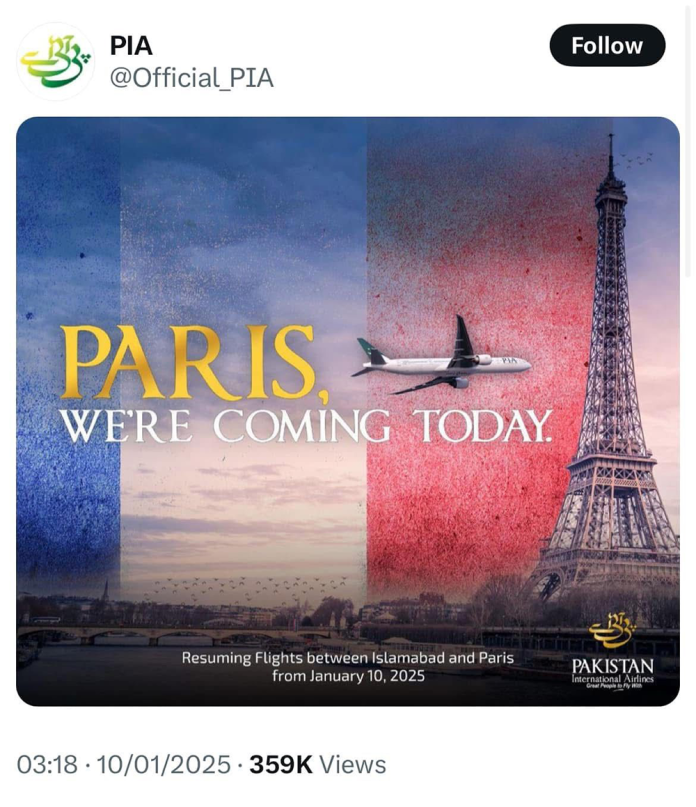Pakistan International Airlines (PIA) recently found itself at the center of a social media storm with a tweet announcing the resumption of flights to Paris. The post, featuring the Eiffel Tower and the tagline “Paris, we’re coming today,” quickly went viral, but not for the reasons PIA intended.
The tweet’s design, reminiscent of a famous 1970s PIA ad featuring a plane silhouette over the World Trade Center, drew immediate comparisons to a tragic event in history. Critics slammed the post as tone-deaf and insensitive, with some even calling for the firing of the creative agency responsible.
However, amidst the outrage and ridicule, a different narrative is emerging: that of a marketing masterstroke.
Gorilla Marketing at its Finest
PIA’s tweet, despite its controversial nature, achieved what many meticulously planned marketing campaigns fail to: it went viral. The tweet garnered millions of views and shares, catapulting PIA and its Paris route into the global spotlight.
While unintended, the tweet tapped into the power of controversy and shock value, a hallmark of gorilla marketing. This unconventional approach, relying on surprise and buzz rather than traditional advertising, can be highly effective in capturing attention and generating organic reach.

The Power of Organic Reach
In today’s digital age, organic reach is gold. Paid advertising can be expensive and often less effective than content that spreads naturally through social media. PIA’s tweet, despite the negative connotations, achieved widespread organic reach, far surpassing what any paid campaign could have delivered.
The tweet sparked discussions, debates, and even memes, ensuring PIA’s message reached a global audience. This organic buzz generated invaluable brand awareness and publicity for the airline.
A Risky Gamble That Paid Off
While the tweet’s content was undoubtedly risky, it ultimately paid off for PIA, in a big way. The controversy surrounding the post overshadowed any negative sentiment towards the airline itself. In fact, many who criticized the tweet still acknowledged PIA’s marketing prowess.
PIA’s tweet serves as a reminder that in the digital age, controversy can be a powerful marketing tool. While ethical considerations are crucial, a well-crafted, attention-grabbing message can generate significant organic reach and brand awareness, even if it comes at a cost.
Whether you view PIA’s tweet as a marketing genius or a tone-deaf disaster, one thing is certain: it was a viral sensation. The tweet’s unexpected reach highlights the power of gorilla marketing and the importance of organic reach in today’s digital landscape.


